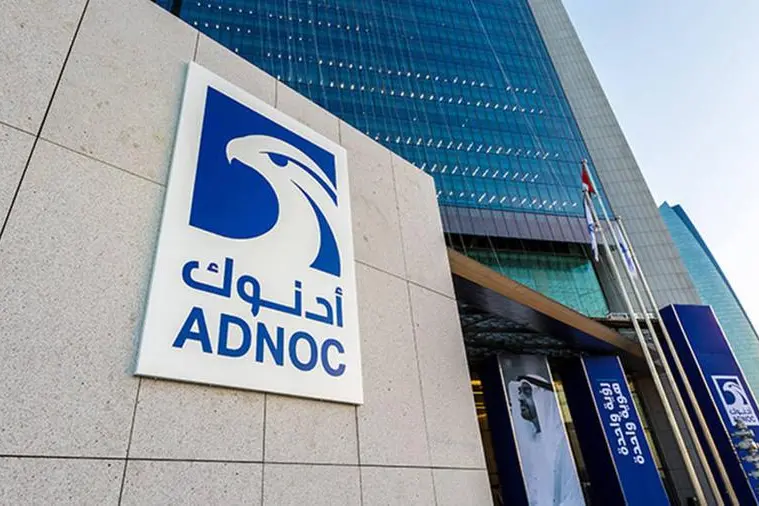PHOTO
ABU DHABI – Abu Dhabi National Oil Company (ADNOC) is accelerating operationalisation of its board mandated low carbon growth strategy, by establishing a new Low Carbon Solutions and International Growth vertical that will focus on renewable energy, clean hydrogen and carbon capture and storage, as well as international expansion in gas, liquefied natural gas (LNG) and chemicals. Musabbeh Al Kaabi has been appointed Executive Director of the new vertical.
The creation of the Low Carbon Solutions & International Growth vertical builds on the company’s successful track record in responsibly and sustainably supplying energy to the world. It will play an important role in advancing the company’s ongoing transformation, which has included a steadfast focus on the decarbonisation of its operations, energy efficiency and operational excellence, reductions in methane emissions, advancing CCUS to cut CO2 emissions, and the use of renewable and other zero-carbon energy sources.
Dr. Sultan bin Ahmed Al Jaber, Minister of Industry and Advanced Technology and Managing Director and Group CEO of the Abu Dhabi National Oil Company (ADNOC), said, “The Low Carbon Solutions & International Growth vertical will accelerate delivery of our decarbonisation roadmap and advance our Net Zero by 2050 ambition. As the UAE prepares to host COP28 next year, we will continue to focus on practical and positive solutions that drive progress for the climate and the economy.
“With the direction and support of our nation’s wise leadership and the ADNOC Board, ADNOC is embarking on a new and exciting period of accelerated growth, with a determined focus on sustainability that will help future-proof our business for decades to come. To lead and drive the delivery of our new mandate, I am pleased to announce the appointment of Musabbeh Al Kaabi to the role of Executive Director, Low Carbon Solutions & International Growth, with effect from 16th January 2023.”
Since its inception, ADNOC has been focused on sustainability, including eliminating routine flaring of natural gas across its operations. Its investments in the early 1980s to gather and process flared gas have been instrumental in mitigating the negative environmental impacts associated with flaring. The company recently set a new upstream methane intensity target of 0.15 percent by 2025, which is the lowest in the Middle East, and plans to continue to reduce methane emissions through the use of flare gas recovery systems and regular leak detection and repair programmes.
As part of its commitment to cutting emissions, ADNOC is building on the success of the region’s first commercial-scale carbon capture, utilisation and storage (CCUS) facility, to increase its CO2 capture capacity by over 500 percent, to approximately 5 million tonnes per year by 2030. This will be achieved by capturing additional CO2 from its gas processing plants and other sources of CO2 emissions. Meanwhile, in collaboration with industry partners, academia, and research institutes, ADNOC is exploring opportunities to advance CCUS technology development and deployment, while driving down its costs.
As part of its decarbonisation roadmap, beginning in January 2022, ADNOC was the first hydrocarbon company to source 100 percent of its grid energy from clean nuclear and solar power. And, it is expanding its use of clean grid power offshore, by building a $3.6 billion, first-of-its-kind, sub-sea transmission network in the Middle East and North Africa (MENA) region. Once completed, it will connect ADNOC’s offshore operations to the UAE’s electricity grid, supplying power from nuclear and solar energy to replace existing gas turbine generators and significantly reduce ADNOC’s offshore greenhouse gas emissions by more than 30 percent.
Leveraging advanced technology, ADNOC has taken tangible steps to implement a variety of energy efficiency projects to target both energy supply and demand. These include the introduction of waste heat recovery, installation of more energy efficient equipment, electrification, optimised operational solutions, and improved combustion efficiencies. In step with its broader digital transformation, it has also established an integrated energy monitoring system in its Panorama Digital Command Centre. Through an interactive platform and dashboard, it can analyse its energy performance, to identify optimisation across the value chain and drive further reduction in its energy footprint.
Protection of the UAE’s natural heritage for future generations, through sustainable biodiversity, water, and waste management, continues to be a priority for ADNOC. It is committed to keeping freshwater consumption below 0.5 percent of total water use and increasing the mangrove population by planting 10 million mangroves seedlings, by 2030, to capture carbon dioxide (CO2) and greenhouse gases (GHG), protect Abu Dhabi’s shorelines from coastal erosion, and provide a safe habitat for marine life.
And, with an eye on the future, ADNOC is accelerating its investments in renewable energy solutions. Together with the Abu Dhabi National Energy Company PJSC (TAQA) and Mubadala Investment Company, it has formed a partnership, under the Abu Dhabi Future Energy Company (Masdar) brand, which targets well over 100GW of renewable energy by 2030. The expanded Masdar entity will become one of the largest clean energy companies of its kind in the world, as it grows its world-class portfolio of renewable energy and green hydrogen projects.
Al Kaabi is currently Chief Executive Officer of the UAE Investments platform at Mubadala Investment Company PJSC (Mubadala), the Abu Dhabi sovereign investor. Prior to that, he was the CEO of the Petroleum & Petrochemicals platform from 2017 to 2020, and the CEO of Mubadala Petroleum between 2014 and 2017. He began his career at ADNOC, where he spent 16 years in a series of senior roles across the core of ADNOC’s business.





















